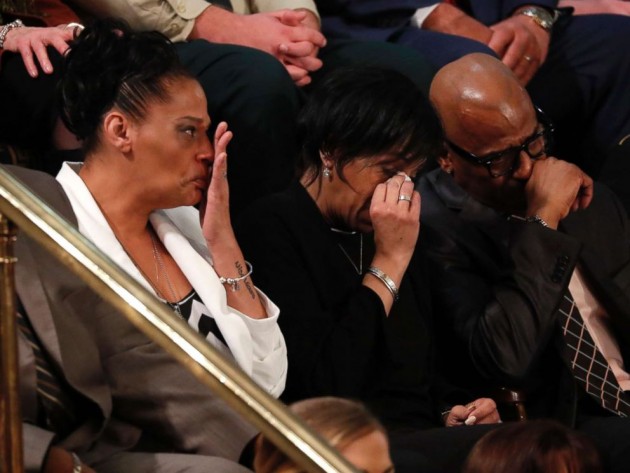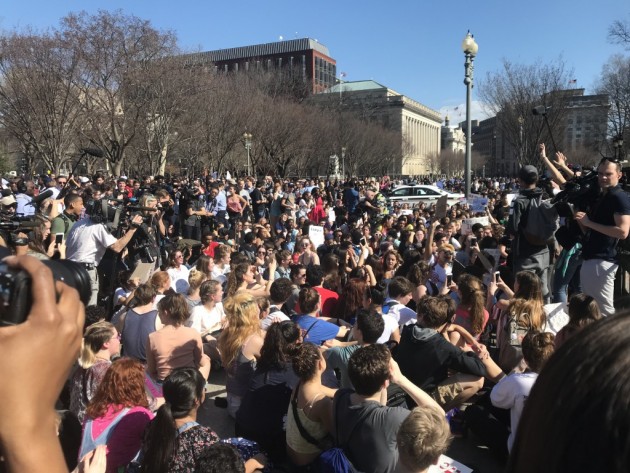Prejudiced Death Sentencing of Juvenile Offenders Put to an End
The Supreme Court recently abolished capital punishment for persons who committed their crime prior to the age of 18. The court ruled that sentencing a juvenile to death is cruel and unusual punishment and violates the 18 amendment.
The decision was based on a 5-4 vote and divided the court. According to a washingtonpost.com report, the court ruling stated that teenagers are “too immature to be held accountable for their crimes to the same extent as adults.”
“I totally agree with the ruling because I do not feel that children should be punished with death at such an early stage of their lives where they are still immature in mind and at heart,” said senior telecommunications management major Kali Williams.
The court presented a “national consensus” against the practice and provided evidence that juveniles can not be held accountable for their actions and crimes.
The decision was announced by Justice Anthony Kennedy, but tension still festers between justices on this matter. This ruling overthrows the laws in 20 states and releases 70 juvenile offenders across the country from death row. The prisoners will probably be re-sentenced to life in prison.
This decision reversed the 1989 ruling that agreed with the death penalty for 16-and 17-year-old offenders. Nickolas Clark-Durham, 22, who attends the University of Massachusetts at Boston, believes that race plays a large part in the decisions regardless of the law.
“I don’t feel that this law is really going to help. This is sending out a notice to the under 18 crowd that it is all right to kill as long as you do it before you are 18,” Durham said with extreme conviction.
The United States has only placed one other regulation on capital punishment. In 2002, the U.S. passed a law stating that mentally retarded persons cannot legitimately be held accountable for their actions and in so, it is morally and lawfully wrong to condemn a mentally retarded person to death. The law passed in 2002 stated that no person who is mentally retarded can receive a death sentence.
DNA evidence is presented everyday that excuses some prisoners from their alleged crime and gets them released death row. This evidence has helped to lessen the amount of persons on death row across the United States.
According to a report by the washingtonpost.com, “It [the decision] came after 59 people were executed in 2004.” The report also stated that there have been 22 executions of juveniles since 1976.
Prior to the ruling, the state of Virginia had set a minimum death-penalty eligibility age at 16, Maryland eliminated the death penalty and prohibits the death penalty for those younger than 18. The greatest impact of the recent ruling will be felt in Texas and Alabama. There are currently “29 juvenile offenders on death row in Texas and 14 in Alabama.” Outside of these states, no other state has more than five people awaiting execution.
Bernie Welch, Junior Hospitality Management major at Bowie State University commented, “I believe in life not death, unless it is a really bad crime. If they are old enough to commit such a heinous crime then they should get the punishment that comes along with it. If they are under 18 they should get life with no chance to ever get out.”
_______________________________________________________________________________
The end of the death penalty for juvenile offenders symbolizes for many African Americans a step closer to a more just criminal justice system in the United States. Due to the recent Supreme Court ruling that outlawed the death penalty for juveniles, 29 black offenders who committed their crimes when they were 16 or 17 no longer face the death penalty.
“The ruling took the only course that could ensure that race does not determine whether a capitally charged juvenile lives or dies,” said Theodore Shaw, president of the NAACP Legal Defense and Educational Fund.
In a 5-4 ruling on March 1, 2005 the Supreme Court abandoned a decision made 16 years ago that permitted sentencing juvenile offenders and regarded the death penalty for juveniles as constitutional. The ground-breaking decision was announced by Justice Anthony Kennedy who, writing for the majority, said that juvenile offenders lack maturity and should therefore not be held to the same standards of adult offenders.
"From a moral standpoint it would be misguided to equate the failings of a minor with those of an adult," Justice Kennedy wrote in an opinion.
The United States is the only country that officially had the death penalty in place for juvenile offenders. Until recently, United States and Somalia were the only two countries not to ratify The Convention on the Rights of the Child, an international human rights treaty that opposes the death penalty for juveniles.
Human rights organizations such as Amnesty International who have been campaigning to end the death penalty say that the law has been “applied in a manner that was openly and unashamedly biased against people of color.”
Out of 3,487 inmates on death row, 72 are offenders who committed crimes at the age of 16 or 17. Out of these 72 juveniles, 29 are African Americans who will no longer face the death penalty due to the recent Supreme Court decision.
Marymount University graduate Shaheed Patteron applauds the decision.
“It is a step forward for black people,” the 24-year-old said.
“The main problem is that most minorities are only able to afford a low quality of legislative representation because they do not have the money to hire a qualified attorney.”
Although Patterson is pleased with the decision, he says that the United States legal system has a long way to go in ending racial discrimination.




